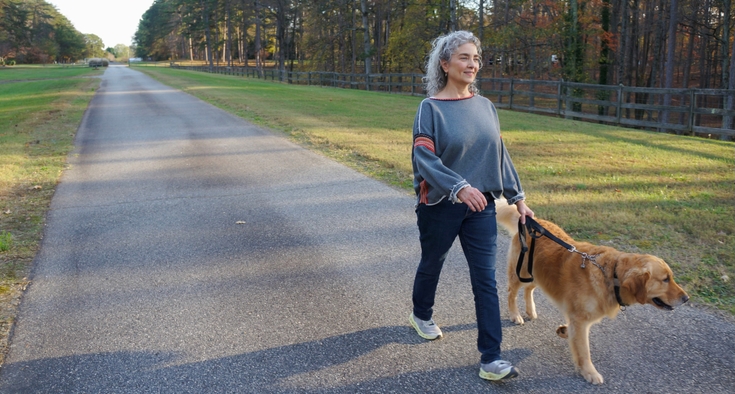If you’re 65 or older — especially if you’ve retired to a new city — finding a primary care doctor who's a perfect fit can be a challenge. You might want someone who has expertise in a chronic health problem you have or, if you’re doing well, someone who will help you stay that way.

Dr. Aram Alexanian of Novant Health Primary Care Gilead in Huntersville, North Carolina, said some savvy sleuthing will help you find a doctor you’ll be comfortable with for years to come. Nearly one-third of older Americans visit at least five different doctors a year, according to a recent study, and primary care doctors like Alexanian coordinate that care.
"I always feel like everybody needs a doctor in the family," he said. "And we primary care doctors end up being a little bit of everything for our patients."
Step one: Seek patient recommendations.
"Word of mouth is usually the best referral source," Alexanian said. Ask family and friends how they like their doctor, and check online profiles and reviews of physicians you’re considering, he recommends. Novant Health’s Physician Finder is one good source.
As an older adult, you can choose one of two types primary care clinics: internal medicine (for patients 18 and up) or family medicine (for patients of all ages).
Step two: Ask questions.
Contact doctors you’re considering and get key questions answered, Alexanian suggests.
Some include: Do you have an on-call service when my doctor is off duty? Will I have access to care after hours? With whom? Do you have an online portal where I can ask questions and see test results or seek prescription updates? (Novant Health’s app, MyChart, offers all that and more. See more below.) Do you take my insurance? And, importantly, do you accept new Medicare patients? (Not all clinics do.)
If you have a chronic health issue, such as emphysema, knee pain or migraine headaches, be sure to ask about access to specialists who treat it, Alexanian said.
Step three: Visit the office.
With this research in hand, it’s time to check out the clinic. An appointment isn’t necessary to get a feel for the medical office. "The feeling you get when you walk into the office, the way you’re greeted — that’s all part of the experience," Alexanian said.
If you like what you see, schedule an appointment and meet the doctor. It’s important to seek one with whom you’ll feel comfortable sharing your most personal health information.
"Ultimately, it’s just seeing that physician or that provider and seeing how that interaction goes — if there’s good chemistry there," he said.
And remember the mantra: Location, location, location. If the clinic you’re considering is a 45-minute rush-hour drive from home, it may not be the best fit for you.
The no-commute alternative
Once you settle on a primary care provider, Novant Health allows you to easily stay in touch and even have a video visit without leaving home. The MyChart app makes scheduling those easy. It also gives patients access to care 24/7.
"There are a lot of advantages for patients," Alexanian says. "No. 1: They have access to see their records easily and communicate with the office in their own time, without phone tag and so forth."
Through MyChart, patients can submit prescription refill requests, and your doctor can share and explain test results.
In turn, patients can use the app to send a non-urgent message and get a response — sometimes within hours. You can also use MyChart to review your health care records as well as your doctors’ notes from previous appointments.
MyChart is also where you go to schedule a video visit with your health care provider or have an on-demand visit with another doctor who’s on call. Novant Health averages more than 30,000 virtual visits a month.
"We want to try to meet the needs of the patient," Alexanian said.
For more about choosing a doctor, visit the U.S. Department of Health and Human Services.













